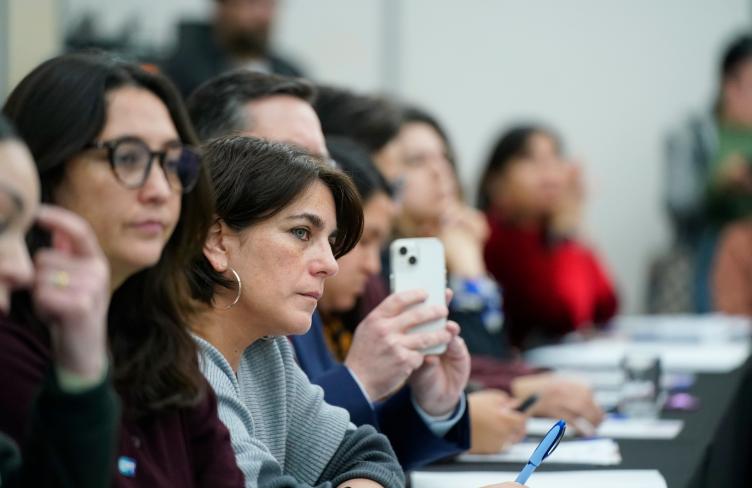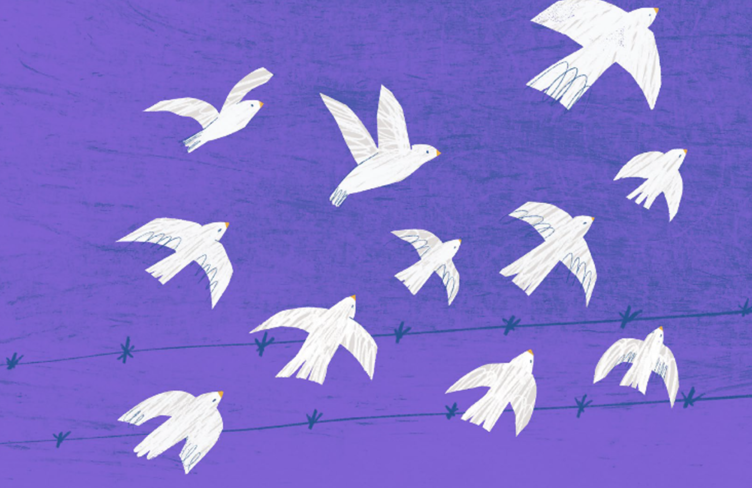
The COVID-19 pandemic resulted in so many concerns for us – women relatives of persons deprived of liberty – as prison visits were suspended and we experienced ongoing uncertainty about the health of our loved ones. Confronted with these challenges, organisations of women relatives from Latin American, the Caribbean and Spain decided to work and advocate together. In 2021, we established RIMUF: the International Network of Women Relatives of Persons Deprived of Liberty.
We understand that the struggle for rights and dignity must be collective, since the violations experienced by persons deprived of liberty – and those we experience as women and family members – have no distinction based on country, culture or religion.
All over the world, prisons destroy the lives of people deprived of liberty. They also drag us, their relatives, to the ground. However, it is an issue that receives scant attention in the prison reform agenda, the human rights agenda, or the gender agenda.
Our experience of supporting sons and daughters, brothers and sisters, mothers and fathers, can be profoundly challenging. From the time a family member is detained, we confront an impenetrable, impassive and often hostile justice system, where the fate of offenders – and therefore own fate – is at stake. We also face a violent and arbitrary prison system, marked by human rights violations, corruption and obscurantism.
Prisons should guarantee people deprived of their liberty access to medical care and basic goods, but it is well known that this does not happen. We travel for hours, over long distances, to stand in endless lines in the sun or the cold, in order to visit our family members and bring them clothes, food, medicine and other basic goods. If we don’t provide these things, our family members are left adrift by the neglect of the prison systems.
When a family member is imprisoned, we face multiple challenges in our lives. We are left with responsibility for managing our homes, caring for our children and maintaining our jobs. We are also the main support for our detained relative. But who is taking care of us? During 2021 we developed our answer to this question: we take care of each other and it is necessary to be organised.
In recent years, in different parts of the world, women relatives of detainees have begun to organise and collaborate at the regional level. These networks allow us to share information, navigate the sufferings, anxieties, uncertainties and fears we experience, solve specific situations and, together, advocate for our rights and those of our imprisoned relatives.
We began to raise our voices and make visible the impact of having a family member imprisoned: what it means for us and what it means for our children. In some cases, we managed to have a voice in local and regional political discussions about the prison situation. The challenges are enormous, including overcrowded prisons that strain under growing numbers and which offer nothing for detainees on their release.
From the start of the COVID-19 pandemic, family women's organisations have had to confront new challenges. Our fear and anxiety became more acute as we were unable to visit our relatives. We also knew the prison health systems would be unable to cope. In the context of this global crisis, we recognised that it was crucial for us to strengthen our cooperation and build an International Network of Female Family Members of Persons Deprived of Liberty (RIMUF).
Our network is made up of organisations of relatives of detainees, mostly women and survivors of the penitentiary systems: Acifad (Argentina); Amparar (Brazil); Mujeres Libres (Colombia); Azul Originario (El Salvador) Familia Penitenciaria Unida (Costa Rica); Relatives of Prisoners from Catalonia (Spain) and Caifam-Documenta (Mexico). We are organisations with different origins, developments and trajectories, but we share in common the experience of navigating COVID-19 and the resulting lockdowns.
RIMUF has, as one of its objectives, to make visible the impact of imprisonment on the lives of women relatives. We want to put this issue on the agenda of international organisations and local feminist groups. Another objective is to strengthen our organisations so that we can jointly advocate for public policies that guarantee the human rights of persons deprived of liberty and their families. We want to be taken into account as agents for prevention of torture. By sharing our experiences, resources, strategies and articulating collective actions online, we also want people to know the damage that prison wrecks our lives.
At the regional level, we seek to advance the idea that family members must be included in discussions about prison management and reform, and that implementing policies to alleviate the impact of prison on our lives is necessary and urgent. Regional work enhances our internal work, and local actions reinforce our international work. The synergy of collective work delivers greater levels of impact outwards, and strength inwards. RIMUF is our place to continue recognising ourselves as relatives of detainees, as activists, and as women with rights that can no longer be postponed.
There is no official data to measure the impact of prison on the lives of the families of prisoners. But we estimate that for every detainee there are at least five people directly affected, including two or three children and adolescents. By combining data from each of the countries in which there are RIMUF organisations, we estimate that from a total of approximately 1,250,000 prisoners, more than six million family members are affecting, including 3.5 million children and adolescents.
Prison forever marks the lives of each one of these people. We are convinced that, in order to build just and peaceful societies, it is essential to draw attention to these issues, build spaces that allow us to share our experiences, and to generate reliable information so that the perspectives and priorities of women relatives are reflected in public policies.
Blog by Red Internacional de Mujeres Familiares de Personas Privadas de la Libertad (RIMUF)

